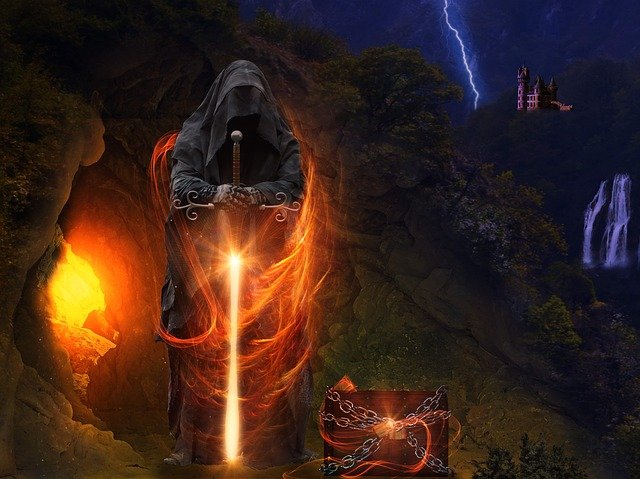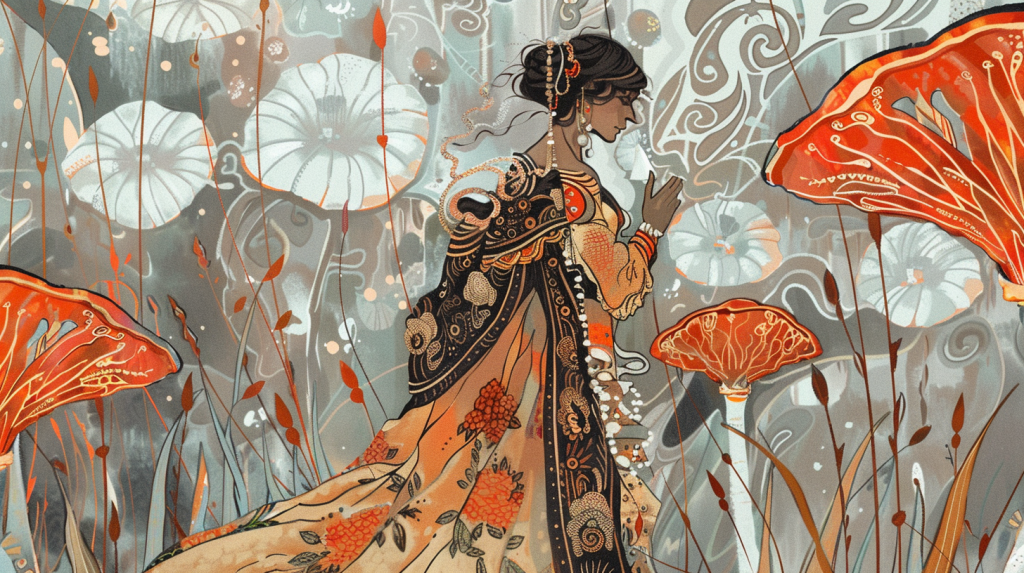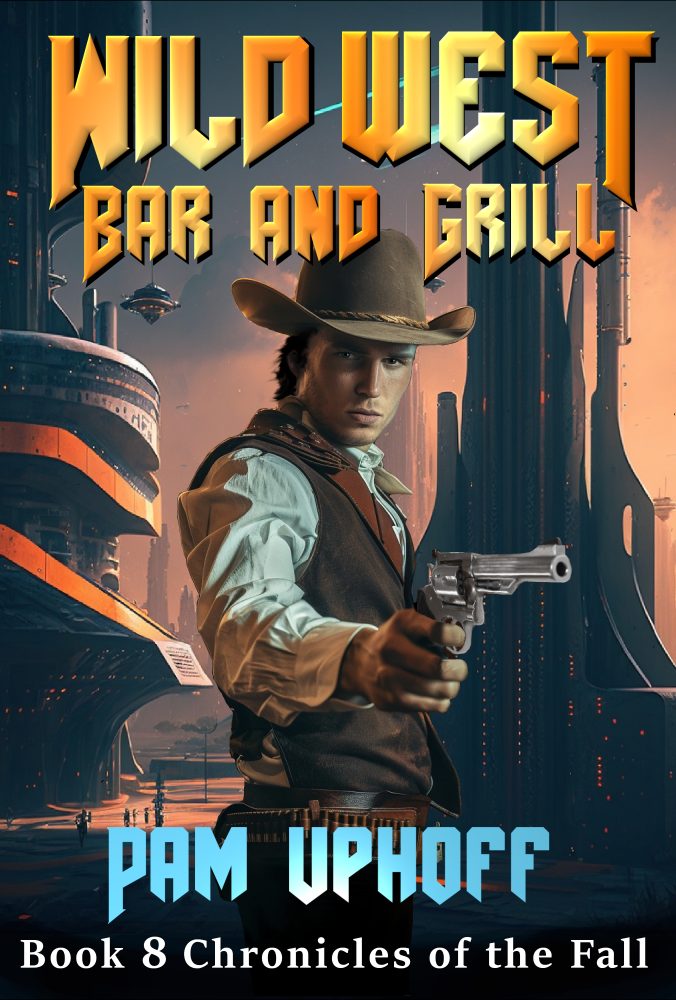This post was originally published in August 2015. The observations are still valid even if some of the players have changed. Back then, we were told the gatekeepers were publishers and agents and we, as writers, hadn’t made it until we managed to pass through their oh-so-hallowed halls. Today, the self-proclaimed gatekeepers are those of the cancel culture who gleefully go after any writer who dares not walk in lock-step with their cause or beliefs–ASG
Recently, I’ve seen a spate of articles and comments on various social media sites extolling the necessity of being traditionally published before you venture into the world of indie publishing. After all, these posts contend, how can you tell if you really are good enough if you don’t first make it through the gatekeepers of a few publishing houses that have been controlling the way things have been done for decades? If you can’t find yourself an agent and can’t get yourself a traditional publishing contract then you simply need to accept the fact that you aren’t good enough to be a writer and you shouldn’t be filling up the digital shelves with what can only be classified as dreck. Oh, these same folks will admit there might be an exception or two to this but they are so few and far between as to be non-existent.
Well, to those folks I say bollocks. For one, that sort of stance forgets the fact that traditional publishers have only so many slots a year they leave open for new authors. It is an arbitrary number, determined by the economics of how many new titles they plan to put out, how many of those will be filled by their best sellers, how many will be filled by their mid-list writers and how many will go to the lucky few to get past the gatekeepers. Even editors, when they are willing to be honest, will tell you there aren’t enough slots for all the good books they see come across their desks. But still, those who are terrified of indie publishing and its impact on the business say you should go the traditional route AND get a contract before going indie.
Of course, there is another reality they so conveniently forget, or at least overlook. Many traditional publishing contracts now include a clause that gives the publisher the right of first refusal. That means an author can’t go indie without first giving their publisher the chance to publish that work. Often those clauses have no time limit on how long a publisher can sit on a “submission” so that bit you want to take indie can wither and die on your publisher’s desk. Worse case scenario — and this has happened — the publisher will cancel your contract and demand your advance back and all because you dared self-publish something that had nothing to do with the project you were contracted for with them.
But there is something else those who say we should go the traditional route and make it past those gatekeepers before branching out on our own forget — those self same gatekeepers have their own tastes and they have been told by the powers that be in the accounting offices what sells and what doesn’t. They are looking for particular types of books based on buying trends. Nothing wrong with that, at least not on the surface. But traditional publishing, unlike indie publishing, is a slow process and what the trend might be today, when the editor accepts a book, probably won’t be the same as the trend in a year or more when that traditionally published book finally makes it to the shelves. An indie author, however, isn’t constrained by such things as going through the corporate ladder or being tied to a publication slot a year or more out because the publisher can only put out so many titles each month.
The landscape of publishing is changing. I think we can all agree upon that. With that change has come a change in the gatekeepers. Once upon a time, those gatekeepers were the publishers. Then, with the need to cut costs on the corporate level, publishers gave agents the role of gatekeeper. Don’t believe me? Ask yourself this then. If the publisher is the gatekeeper why require an author to submit through an agent? That agent decides what is “good enough” and that means decides if they like the work and that, my friends, is based on personal taste, bias, etc. They become the first gatekeepers under the traditional method. They also take a huge bite out of your potential income as a result.
But under the new landscape, who are the gatekeepers? They are, in my opinion, the readers. They are the ones who decide what to spend their money on. They decide what sort of stories they want to read. They are the ones who leave the reviews on Amazon or other online stores where they bought the book. They are our audience, our customers and the ultimate judge of whether or not we are good enough.
But that doesn’t mean we can relax and throw anything we want up on Amazon or iTunes or B&N as an ebook and forget about it. We owe it to our readers, to those who are paying good money for our work, to give them our very best. That means we accept as indies that we have many more hats to wear than the traditionally published author. We are not only the creator of the work but also the bean counter and front office and so much more. It is our job, our duty if you will, to make sure we have a professional looking cover. We need to make sure our work is well edited and formatted in a way that reminds our readers of a “real” book. If that means hiring an editor and someone to format and convert our books for digital and print formats, we need to do that. The alternative is learning how to do it ourselves. We are those one man shops of old where we do it all.
In other words, we are publishing’s jack-of-all-trades. Or we should.
We owe it not only to our readers but to other indie authors to look at our work with a critical eye and not hit the publish button too soon. Cedar wrote a post yesterday that should be a cautionary tale for all of us. It’s fine to be proud of your work. It’s great to want to publish it. But make sure you have someone look at it first who will tell you the truth, no matter how brutal it might be, not only about your writing but your cover and your marketing plans. Every time someone publishes something that is less than the same quality of a traditionally publishing book, there will be a chorus of nay-sayers lining up to point fingers and declare that all indie published books are horrible, awful pieces of dreck.
So, who are the gatekeepers?
The reality is that we, the authors, are the first gatekeepers. We decide if what we have written should be let loose in the wilds of the book buying public. Then we open our gate to our editors and they decide if we are right and the book should be released or if it needs some more work. It is up to us to decide if that editor is correct but this, I remind you, is the time when we put ego and dreams on the back burner and look at our work and the suggested edits with a clear eye and do what needs to be done. The editor isn’t always right but they also aren’t as close to the story as the writer is and can see the holes we know were filled, at least in our minds.
All that said, the final gatekeeper is the reader. That is something traditional publishing, on the whole, has forgotten. There are a few exceptions, Baen being one of them, to that. Those publishers listen to their readers and know that to remain viable they have to keep the core fans happy while, at the same time, expanding their readership. Unfortunately, most publishers, especially the Big Five, see their role as dictating what books should be out there and what reading trends should be continued long after they have run their course. How else do you explain the fact there are so many indie authors writing science fiction, fantasy and certain sub-genres of romance who are making livings from writing in genres all but abandoned by traditional publishing over the years?
So remember this. The ultimate gatekeeper is your reader. They are the ones paying money for your work. They are the ones who will recommend your work to their friends and family. They are also the ones who will drop you like a hot potato if you fail to hold the trust they have put in you. You owe it to them to put out the best project possible and that means thinking twice before hitting that publish button. Have you done all you can to make sure your book is the best it can be? Is your cover appropriate not only to the story but to the genre? Have you used the best tags to make your books findable in a search? Does your blurb entice or intrigue your reader or turn them off so they won’t even look at the preview? Unless you can answer yes to these questions, you are not ready to approach, much less pass, the ultimate gatekeeper — the reader.
Featured Image by Lothar Dieterich from Pixabay





18 responses to “Are You The Gatekeeper?”
The reader is also the potential reviewer.
Absolutely.
As a beta reader for some of y’all I have the absolute power to tell you just what I think of your precious work of art.
And y’all have the absolute power to utterly ignore my opinions.
Works for me.
As if! How could we even consider ignoring our Uncle Lar’s suggestions? VBEG
I would count the ways dear heart, but not enough space in the comments.
You did fix that bit where a revolver magically changed itself into a semiautomatic pistol didn’t you?
Or not, it was after all one of your shifter series.
I plunged into publishing independently after trying for a year to get an agent — with the knowledge that I was already a fair enough writer to have collected many fans through blogging. As a matter of fact, my very first book was a collection of blog posts that I had written about my family and growing up, which the original readers of the blog loved very much. (I even had a little fundraiser to put together the costs of publishing through a POD house, to which the readers and fans contributed.) So I was already pretty confident of my own writing abilities.
You had a plan, which is more than many indies do, and you had a fanbase, which is a big step ahead in the game. But, that said, it makes business sense, which is something too many authors, indies or trad published, tend to forget.
— Worse case scenario — and this has happened — the publisher will cancel your contract and demand your advance back and all because you dared self-publish something that had nothing to do with the project you were contracted for with them. —
That sounds suspiciously akin to the old “yellow-dog contract,” whether or not it was expressed in a written document the writer had to sign. So there might be legal recourse open to the writer.
Yes and no. Yes, if the contract was silent on subsequent works and submissions. No, because many (in fact, at one time it was most) trad contracts included a right of first refusal clause. They interpreted it as including anything you wanted to put out on your own. Technically, the publishers were within their rights to cancel contracts if they had that clause because the author was going into direct competition with them. However–and this is a big note–whether such contracts would be held as valid is up for question because such clauses could be seen as not only chilling on the industry but as onerous on the writer. It is reasonable to agree a publisher has the right to protect a series or franchise. However, they do not have the right to prevent the writer from doing something else and too many right of first refusal clauses were open ended, with no timeline for the publisher to agree or release the proposed new work. Because of that, there was push back and those clauses are still present but with more detail today.
— too many right of first refusal clauses were open ended, with no timeline for the publisher to agree or release the proposed new work. —
I’m shaking my head over here, because of an absurd coincidence: I included exactly such a conflict between writer and publisher as a plot element in a recent novel! (The Wise and the Mad) The world is too full of ironies and coincidences…at least our part of it,
Seems to me those contract clauses might be real interesting in a Right To Work state.
Or do what S. M. Stirling did with Dies the Fire he owed Baen a book with Baen having right of first refusal,. Well the book he showed Jim Baen had at least a couple things Jim wouldn’t like at all. First he made the Black Female Coast Guard Commander a lesbian and then he hooked her up with an underage Indian female. Those last 2 items that were put in just to make Mr Baen to ask for revisions. Revisions Stirling refused to make so Mr Baen turned it down. Funny thing is Stirling had it sold to Ace almost instantly. Almost as if he had already showed it to him.
Well, on topic, I’m doing it wrong. ~:D As with most things, reality of publishing an e-book turns out different than planning. It isn’t deliberate, I swear. I’m just wrong, pretty much 24/7.
But at least I finished it. And at least I got a cover figured out. And at least I finally pulled the trigger and published it after 20+ years of thinking about it and writing it.
So on balance, from my personal perspective at least, doing it wrong is better than not doing it at all. Lessons learned, moving along to the next thing. Which will most likely be wrong in new and inventive ways.
I build furniture wrong too. Funny thing though, it never seems to break or fall apart even though its wrong. ~:D
You done good, and you got it out there. No matter what anyone says, no matter what I may say, that jumps over the gate and straight into achievement. Also, it provides you with folding money in pretty colors.
Gatekeeper: You must beg permission and pay a toll to pass through into the shining city of eternal publication!
Indy Writer: Never mind, I’ll just beat a hole in the wall.
[much dust and banging later, a hole appears.]
Indy Writer: At last, I can enter the city! …..what’s with all the reviewers armed with pikes??
I could only wish there were reviewers armed with pikes coming after me. The truth is that once you break into the city through the hole in the wall…they more or less ignore you. (Which to be fair, is also what tends to happen if you get in through the gate). You have to set up your shop and hawk your wares. Which I have vague plans to do sometime around 2022.
As an indie, you can’t reread and copy-edit enough. Five times through and we’re still finding mistakes in the current book on the table. Spell-check, grammar check, fix and reread, change the font and do it again, then have Younger Son write computer program to ensure everything is in alphabetical order that should be to the final letter and there are no duplicates.
It’s hard to make a book as good as possible but necessary.
Nobody made a joke about being the Keymaster?
I’m disappointed in all of us for it taking this long.